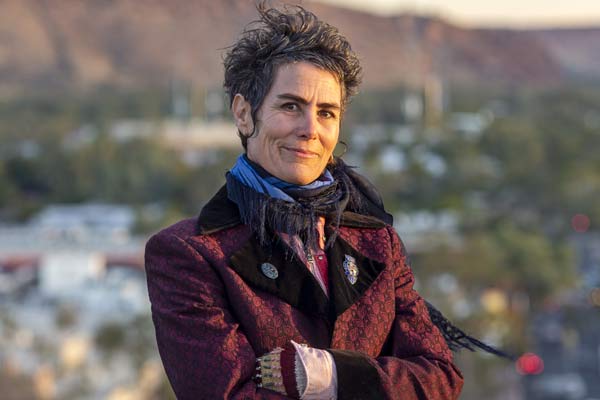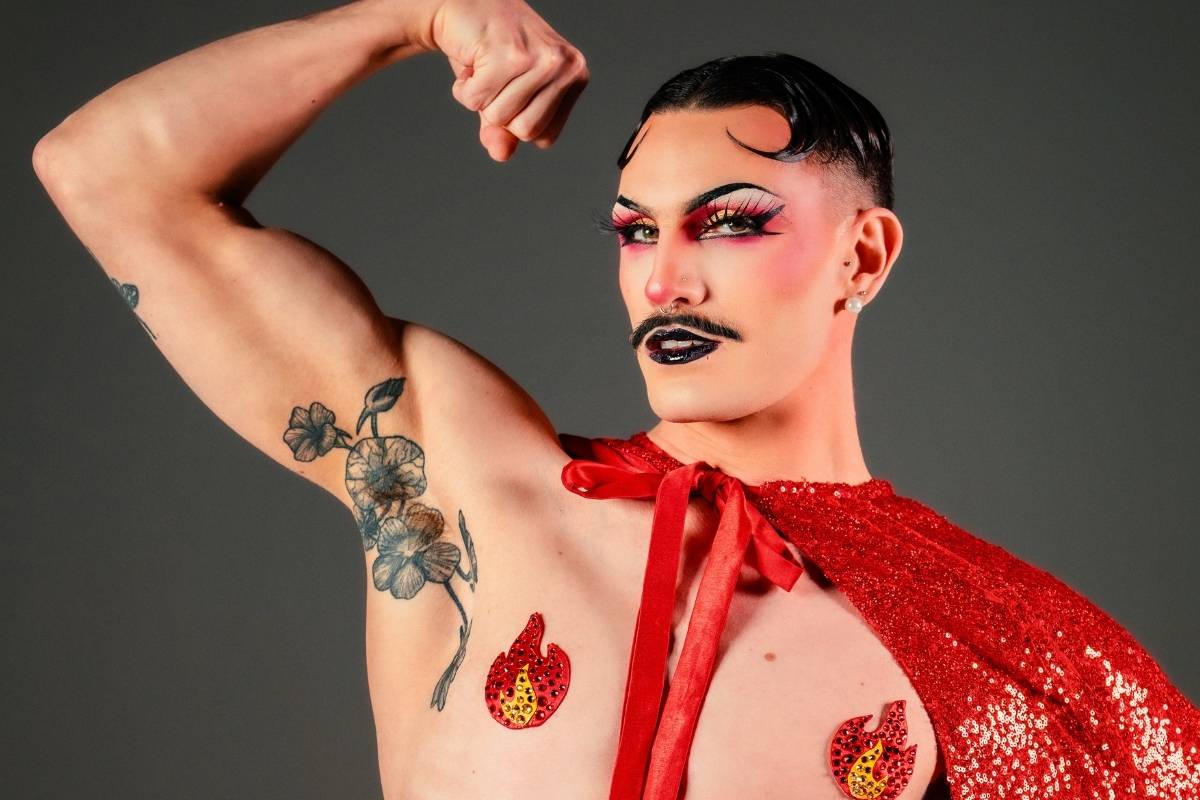Over the past six years I have become one of the faces and stories that have brought intersex issues and education to the public arena both in Australia and internationally, working alongside and in solidarity with many other intersex activists and advocates. It wasn’t an easy decision to make. I knew I would be bringing to the surface old and painful compartmentalised trauma that I would have to face and reconcile. The most recent programme was the intersex episode on ‘You Can't Ask That’. The stigma and secrecy surrounding an intersex body is profound and outing myself publicly was going to be very confronting on many levels. The attempted erasure of intersex variations from the global human biological pool through surgical gender assignment and secrecy since the 1950s has been coercive and relentless, and is still happening today. These surgeries have resulted in countless experiences of physical, emotional, mental and spiritual trauma for many, many intersex humans. There is still so much work for us all to do to bring education and awareness to this topic. Intersex: The last frontier!
In April of this year I received a surprising email inviting me, via a scholarship, to present my experiences from a queer intersex Australian’s perspective, as part of the Asia Pacific delegation at the first Global Feminist LBQ Women’s* Conference in Cape Town. Although the acronym did not include female-identified transgender and intersex humans, we were however invited and present.
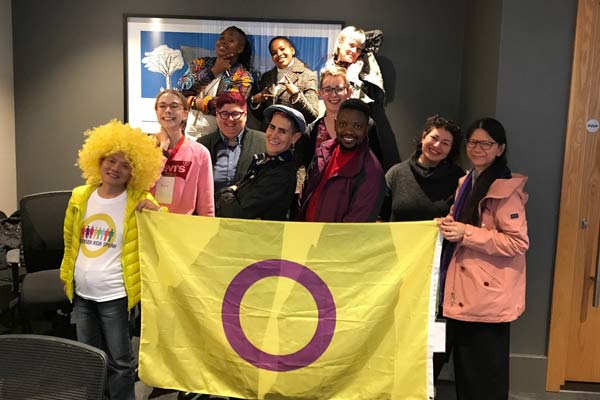
Before the invitation I had no idea that this conference had been in the making or the reasons behind the conference. When I read the synopsis of the conference, I had a deep sense of its importance and that I would be honoured to present on a panel and to broaden my knowledge on global LGBTQI women’s issues:
“The conference is being organised by a collective working group of 22 LBQ women* activists from across all regions of the world. It aims to create a space for activists and advocates to come together, share knowledge, exchange strategies, strengthen connections, mobilise resources, and take the lead in building a global LBQ women's* movement with the capacity to influence the world agenda on human rights, health, development. We hope to bring together 500 participants from around the world.”
The themes of the conference were 'Leadership, Healing and Transformation'.
For the past 12 years I have focused my energy in the Central Desert of Australia. I have been working alongside Central Desert remote communities with the Indigenous youth acknowledging and confronting intergenerational trauma as a result of ongoing colonisation. Music and specifically rhythm ensembles have been the medium with which I have offered a way to assist in the mitigation and potential healing of trauma. I used this medium because I had been my own best experiment with this process when I began my rhythm career 20 years ago. Having experienced the effects of trauma on my life and then feeling the changes in my mind and emotional bodies through years of rhythmic practise, I had a strong sense that offering rhythm to the youth in remote communities would also offer some kind of relief in the face of the ongoing pressure from government to 'intervene' on their lives, land, cultures, language, and self-determination. As years went by the research into the profoundly positive effects of 'rhythm therapy' on the traumatised human mind and body were evident and well-publicised . I designed and ran these remote Youth Empowerment programmes with my then same-sex partner Svetlana Bunic. The effects and outcomes were very positive and welcomed. We were 'Ba-Boom! Adventures In Sound!'.
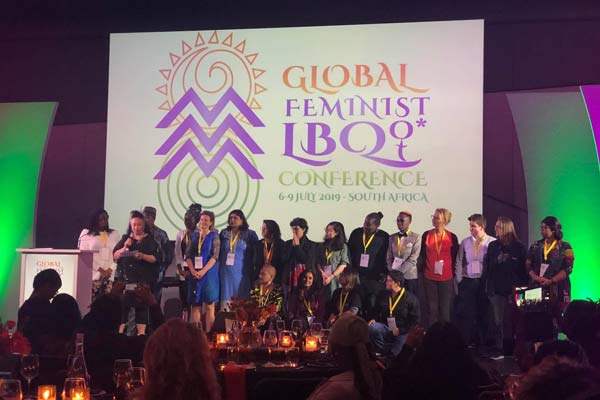
My intersex and queer status seemed somewhat insignificant given the ongoing complex issues, poverty trauma and marginalisation of the Indigenous population of Australia.
After several years of living and working with the youth sector in the desert regions of Australia, I became aware of yet another issue, that of gender and sexual orientation and identification outside of the expected heterosexual, binary norms, within the Indigenous populations. As with nearly all other populations of the earth, same-sex attracted, transgender, non-binary and intersex demographics have become (by means of the overlay of Christian values and intervention) persecuted and are often subject to bullying, brutality, violence, segregation and further marginalisation from an already profoundly marginalised human demographic. These issues were not immediately obvious as there seemed to be so much stigma attached to this demographic that it was often hidden among the multitude of other complex issues in Indigenous populations. Starlady's 'Queen Of The Desert' dug deep into this issue and began an incredible campaign of education far and wide alongside other colourful and wise members of the LGBTQI community, here in the Central Desert.
It wasn’t until I arrived at the Global Feminist LBQ Women’s* conference that I realised the relevance and significance of this global gathering of female-identified activists from all over the world and the related issues faced here in our diverse communities in Central Australia. Alice Springs (Mparntwe) – the home of the original Arrernte inhabitants.
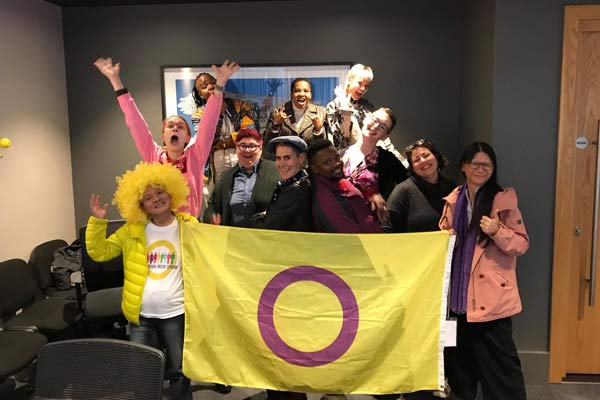
106 countries were represented with approximately 500 attendees. The majority of women were women of colour and Indigenous to their country of birth.
The conference topics were broad and deep and too many to mention here – (please to refer to programme on website if interested). Besides being honoured to meet and present with other intersex humans from around the globe and to be astonished and mortified that our shared stories and experiences were so strangely (yet maybe not so strangely but intentionally?) similar and ongoing, I had the privilege of attending so many other presentations and learning about the experiences, stories, struggles, perspectives, ongoing challenges, insights, wisdom, and courage of LGBTQI women from so many regions and countries around the world.
I learned that the intersection and consequences of being a woman, a woman of colour and identifying within the LGBTQI demographic often bring extreme persecution, segregation, invisibility, brutality, and more often than one could believe possible, death. I learned that we can’t separate the global refugee issues from the climate issues and that within these often forgotten and rejected demographics are other marginalised groups, one of which is of course the LGBQTI identified humans. I was reminded once again of the global damage the dominant patriarchal, capitalist paradigm has done to cultures, languages, land, oceans, forests, animal species and the global access to clean water and affordable food when the clean technologies are available but not released to the world due to destructive capitalist greed.
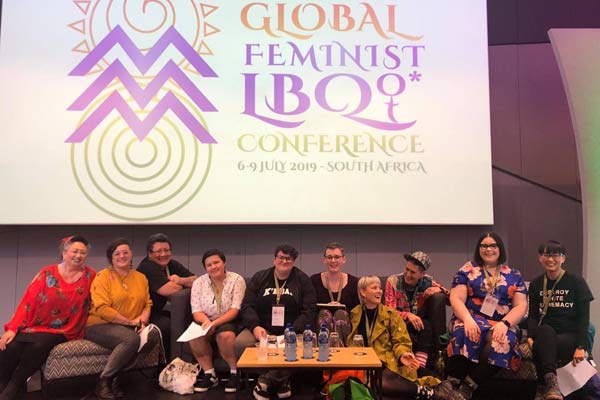
Alongside all of these and many other issues, aspects and struggles that I became more aware of, I also became aware of the healing intention and energy that is going in to challenging and changing so many of these global issues. The leadership and courage, the wisdom, the ancient knowledge, ritual, and ceremonies. I learned that the women from the multiple earth cultures who identify with the LGBTQI demographic are not going to lie down and die and be kicked to the curb. As Andrea M. Ayala from El Salvador said in the South American Plenary titled 'Healing: Reflections From South America', “There is no resistance without resistance”. There are many ways to resist. These women will fight for their rights to equality, for their communities, for their land and for their culture and language, they/we will fight for visibility and a life without fear. They/we will fight for the survival of the earth in a time of extreme political polarisation, corporate reign, hidden agendas and diabolical environmental destruction. But they/we are not fighting violence with violence. They/we bring the notions of healing and transformation by resurrecting ancient song, chant, plant knowledge, respectful clear and intelligent discourse with the view to transform and educate not destroy through ignorance, hatred, racism, segregation and separation. They/we choose a unifying field.
If I were to choose a series of words to summarise the incredibly life-changing experience I have just returned home from they would be: Diaspora, intersectionality, cultural diversity, witness, ally, constructive deconstruction, decolonise the mind and the body, decentralise and destabilise the patriarchy!


